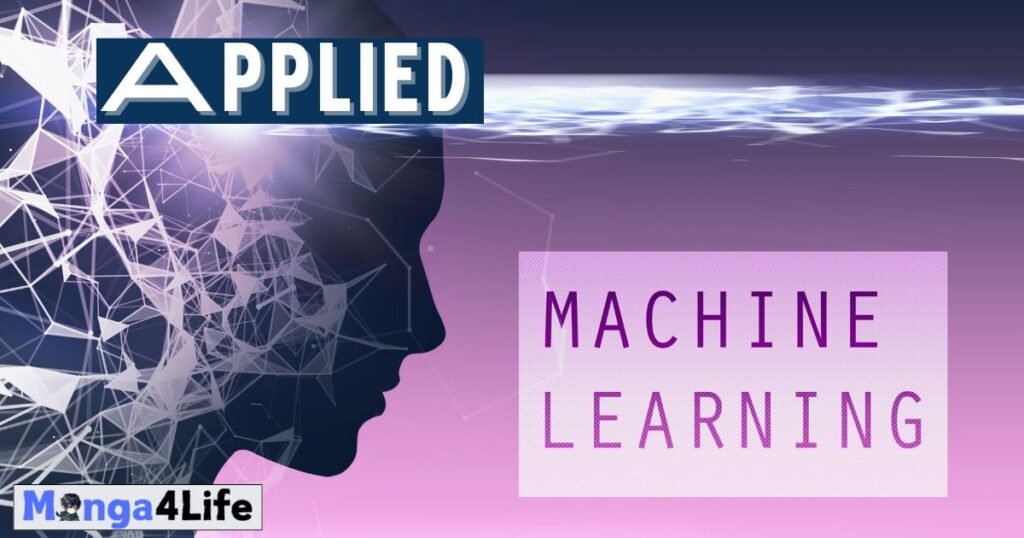Top Applied Computer Technologies Transforming Industries

In these days hastily evolving international, applied computer technologies are drastically shaping and transforming industries. From healthcare to manufacturing, these technologies are revolutionizing how agencies operate, presenting revolutionary solutions and efficiencies. This manual explores the pinnacle of PC technologies that are transforming industries, imparting a step-by-means -of-step breakdown of their effects.
What Are Applied Computer Technologies?
Applied computer technology confers with the practical use of computer science standards to resolve actual global issues across diverse industries. These technologies embody a wide range of applications, consisting of synthetic intelligence, machine studying, huge facts, and the Internet of Things (IoT). As those technologies advance, they’re becoming pivotal in optimizing enterprise techniques, enhancing decision-making, and using standard increases.
Understanding the Role of Artificial Intelligence (AI)
Artificial Intelligence (AI) is at the leading edge of carried-out laptop technologies reworking industries. AI involves developing clever systems capable of acting duties that normally require human intelligence, including selection-making, speech reputation, and language translation.
AI’s Impact on Industries:
- Healthcare: AI algorithms can are expecting patient results and advise customized remedy plans, improving affected person care.
- Finance: AI helps in fraud detection, change management, and automated trading techniques, enhancing operational performance.
- Retail: AI-pushed analytics personalize purchasing experiences and optimize inventory control.
By enforcing AI, industries can automate complex obligations, reduce mistakes, and make greater informed decisions, thereby reworking their operations.
Leveraging Machine Learning for Predictive Analysis

Machine Learning (ML), a subset of AI, focuses on growing algorithms that allow structures to study and enhance from experience without being explicitly programmed. It plays an essential role in remodeling industries by way of enabling predictive evaluation and automation.
Applications of Machine Learning:
- Manufacturing: ML fashions are expecting equipment disasters and optimize protection schedules, minimizing downtime.
- Marketing: Machine learning analyzes purchaser behavior and possibilities, permitting corporations to create focused advertising campaigns.
- Logistics: ML optimizes deliver chain management by predicting demand, reducing costs, and improving shipping efficiency.
Technologies transforming industries through machine-gaining knowledge provide agencies with a competitive aspect by improving their ability to anticipate marketplace adjustments and customer wishes.
Harnessing the Power of Big Data Analytics
Big Data Analytics is another vital aspect of applied computer technologies remodeling industries. Big records refer back to the huge volumes of based and unstructured information generated by way of companies. Analyzing these statistics allows businesses to uncover styles, trends, and insights that pressure strategic choices.
Impact of Big Data Analytics:
- Healthcare: Big facts analytics facilitates coping with patient statistics, enhancing diagnostics, and predicting fitness tendencies.
- Retail: It allows stores to investigate consumer behavior, optimize pricing strategies, and decorate patron reviews.
- Banking: Big facts are used to hit upon fraudulent activities, determine credit score risks, and tailor financial products.
By effectively utilizing large statistics analytics, industries can make statistics-pushed selections, enhance operational efficiency, and beautify client delight.
The Internet of Things (IoT) Revolution

The Internet of Things (IoT) is a network of interconnected devices that talk and change information over the Internet. IoT is one of the leading technologies transforming industries with the aid of presenting real-time insights and automating approaches.
Applications of IoT in Industries:
- Manufacturing: IoT devices display system health, song manufacturing approaches, and decorate supply chain visibility.
- Healthcare: Wearable IoT devices display patient vitals, permitting far-off care and improving health results.
- Agriculture: IoT sensors assist in precision farming with the aid of tracking soil conditions, optimizing irrigation, and growing crop yields.
The integration of IoT allows industries to perform greater efficiently, reduce operational prices, and improve common productivity.
Exploring Blockchain for Enhanced Security
The blockchain era is known for its role in cryptocurrencies, but its programs amplify some distance past finance. Blockchain gives a stable, transparent, and immutable manner of recording transactions, making it one of the key technologies transforming industries.
Blockchain’s Impact on Various Industries:
- Finance: Blockchain enhances transaction safety, reduces fraud, and allows transparent cross-border bills.
- Supply Chain: It affords stop-to-give-up visibility, ensuring the traceability and authenticity of products.
- Healthcare: Blockchain secures affected person records, improves facts sharing among carriers, and enhances medical research.
By enforcing blockchain, industries can ensure records’ integrity, lessen fraud, and build believe with stakeholders.
Cloud Computing for Scalable Solutions
Cloud computing enables businesses to keep, manipulate, and procedure information on far-off servers rather than local servers or private computer systems. This generation is crucial inside the realm of implemented computer technologies reworking industries as it gives scalable and bendy solutions for companies.
Benefits of Cloud Computing:
- Scalability: Cloud computing lets companies scale their operations up or down based totally on demand.
- Cost Efficiency: It reduces the need for bodily infrastructure, cutting down operational costs.
- Collaboration: Cloud structures facilitate far-off collaboration, permitting groups to paintings collectively from one-of-a-kind places.
Cloud computing empowers industries by using imparting bendy sources, enhancing collaboration, and assisting innovation with out large upfront investments.
Robotic Process Automation (RPA) for Efficiency
Robotic Process Automation (RPA) involves using software robots to automate repetitive and mundane tasks. This technology is one of the crucial technologies transforming industries, particularly in sectors with high-volume, rule-based tasks.
RPA Applications:
- Finance: RPA automates tasks such as data entry, invoice processing, and account reconciliation.
- Healthcare: It streamlines administrative tasks, such as patient record management and appointment scheduling.
- Customer Service: RPA bots handle routine inquiries, freeing up human agents for more complex interactions.
By adopting RPA, industries can reduce operational costs, improve accuracy, and enhance productivity.
Virtual and Augmented Reality for Immersive Experiences
Virtual Reality (VR) and Augmented Reality (AR) are redefining how industries interact with their customers and train their employees. These applied computer technologies create immersive experiences that engage users and improve learning outcomes.
Industry Applications of VR and AR:
- Retail: AR allows customers to visualize products in their homes before purchase, enhancing the shopping experience.
- Education: VR provides immersive learning environments, making education more engaging and effective.
- Manufacturing: AR assists workers in complex assembly processes, reducing errors and improving efficiency.
As VR and AR technologies continue to advance, their potential to transform industries grows, offering new ways to interact, learn, and work.
Cybersecurity Solutions for Safeguarding Digital Assets
As businesses adopt more applied computer technologies, the need for robust cybersecurity solutions becomes critical. Protecting digital assets and data from cyber threats is paramount for all industries.
Cybersecurity Technologies:
- AI-Powered Security: AI algorithms detect and respond to threats in real time, enhancing security measures.
- Encryption: Secure encryption methods protect sensitive data from unauthorized access.
- Network Security: Advanced firewalls and intrusion detection systems safeguard networks from external attacks.
Technologies transforming industries with advanced cybersecurity solutions ensure the safety and integrity of digital information, building trust and protecting against potential losses.
Embracing Quantum Computing for Future Innovation
Quantum computing represents the next frontier in applied computer technologies transforming industries. Quantum computers leverage quantum mechanics to process information at unprecedented speeds, solving complex problems that are beyond the reach of traditional computers.
Potential Impact of Quantum Computing:
- Pharmaceuticals: Quantum computing accelerates drug discovery by simulating molecular interactions at a quantum level.
- Finance: It optimizes trading algorithms and risk management models, enhancing financial strategies.
- Logistics: Quantum algorithms solve complex logistics challenges, improving route optimization and resource allocation.
Although still in its early stages, quantum computing holds the potential to revolutionize industries by providing solutions to problems previously deemed unsolvable.
FAQs
1. What is applied computer technology?
Applied computer technology to resolve actual-world issues across one-of-a-kind industries. It consists of growing software programs, hardware, and systems that enhance efficiency and overall performance. This era is sensible and centered on implementing solutions, in contrast to theoretical tactics. It’s used in diverse fields like healthcare, finance, and production, driving innovation and increase.
2. What is an example of computer technology?
An instance of laptop technology is artificial intelligence (AI), which mimics human intelligence in responsibilities. AI is utilized in voice assistants like Siri, chatbots, and self-driving vehicles. Another example is cloud computing, which allows record storage and processing over the internet. These technologies assist agencies in enhancing operations and consumer studies.
3. What are computer-based technologies?
Computer-based technology involves the use of computer structures to carry out specific tasks and clear up issues. Examples consist of software applications, databases, and net offerings. They are used in everyday lifestyles, like phrase processing, online banking, and social media. This technology streamlines operations, decorates communication, and provides treasured tools for personal and expert use.
4. What is applied vs. technical computer science?
Applied computer science focuses on practical solutions using computer technology in real-world scenarios. It involves software development, system design, and implementation. Technical computer science, however, is more theoretical, dealing with algorithms, computation theory, and computer architecture. While applied computer science solves immediate problems, technical computer science builds foundational knowledge.
5. How does applied computer technology transform industries?
Applied laptop era improves performance, productivity, and selection-making in various industries. In healthcare, it complements diagnostics and affected person care through AI and statistics analysis. In production, it optimizes procedures with automation and robotics. By integrating era, industries can adapt fast, lessen charges, and stay competitive within the market.
Conclusion
Applied computer technologies are at the center of virtual transformation, supplying innovative solutions that rework industries and drive growth. As these technologies continue to evolve, their impact on corporations will only develop, leading to new opportunities, efficiencies, and ways of working.
Industries that include these technologies transforming industries may be better positioned to evolve, compete, and thrive in an increasingly more virtual international. By staying ahead of the curve and adopting brand-new advancements, groups can ensure their fulfillment within their destiny.
Investing in carried-out laptop technology isn’t just an option, it’s a need for industries trying to remain applicable and competitive in today’s fast-paced environment.




